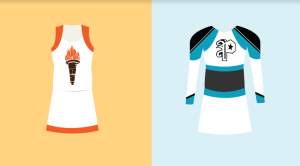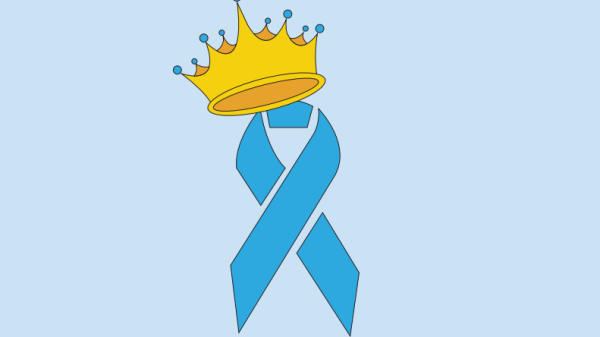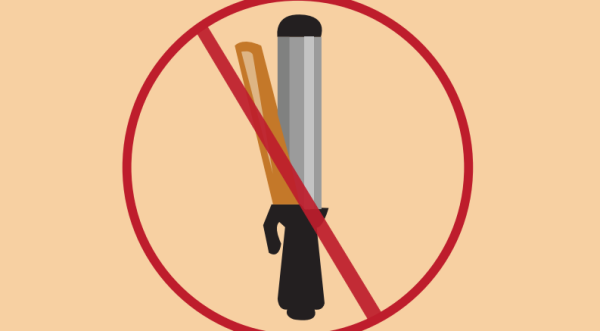The Story Behind a Student’s Life with Anxiety
November 12, 2015
A doctor’s appointment originally to check on allergies took a scary turn for sophomore Tori Overfelt when she was diagnosed with generalized anxiety disorder. Overfelt knew the diagnosis was coming and was expecting the news when the doctor told her exactly what she thought.
In mid-April 2015, Overfelt was hit with the big news that she had a mental illness and the challenges that came along with it. Since Overfelt is an extrovert, there were a lot of drastic changes that she had to deal with, even though she self-diagnosed herself before going to the doctors.
Overfelt started off by looking up her symptoms, and she only felt comfortable with telling her two closest friends at the time about her believed anxiety disorder. She started sharing her feelings with a few other friends, until she decided it was probably time for her mother to know too.
When at the doctors, Overfelt’s mom pushed her in the right direction and encouraged her to tell the doctor. Overfelt’s predictions were correct; she had generalized anxiety disorder.
Along with the diagnosis of generalized anxiety, Overfelt was prescribed to a medication, that she takes once a day, that helps control her anxious feelings. The medication contains melatonin, a calming hormone. She opts to take them during the night so she isn’t drowsy during the day.
“I take them at night so [the medication] has to last over the day, and often it helps, but it can’t cure it completely, or then I’d be in a daze all day,” Overfelt said.
Since the medication wears off throughout the school day, Overfelt has found other ways to help her when anxiety or panic attacks take over. When she gets stressed, she texts a close friend, usually Emily Hales, that she trusts to help her calm down and remind her that she will be okay.
Hales, sophomore, is one of Overfelt’s closest friends and has supported her through everything that has happened. Not only was Hales one of the first people to know about the diagnosis, but she was also one of the two people that knew beforehand.
When Overfelt needs someone during the school day, Hales is always there to help calm her down.
“If she starts to get anxious or gets worried about something, I’m like ‘No, it’s okay. Don’t be worried about that’ and I’ll tell her reasons why she doesn’t have to be worried about it,” Hales said.
For Overfelt, her anxiety attacks usually come from overestimating small things in life, including approaching people.
“I’ll freak out over small things and overestimate them; anything really small that wouldn’t matter to a normal person. I just freak out over it and think it’s going to have a big effect on my life.”
Sometimes, Overfelt’s friends can forget about her anxiety disorder, which trigger anxiety or arguments with them. They can often become insensitive towards her when she’s scared to do something, or think she is just overreacting to a situation. After having an argument with a close friend,she is usually fear-ridden to talk with them.
“I’m just afraid that something really bad will happen or that they’re gonna stop talking to me completely or something,” Overfelt said.
Another fear of Overfelt’s was that her friends or other people would stop liking her once they heard she had a mental illness. However, she has learned that this is not true at all, and it was ridiculous to believe this in the first place.
Overfelt compared having a mental illness with having a physical injury, and how it is important to take care of both like they are the same. With a physical injury, it is important to stop and take care of it. In Overfelt’s opinion, this also must happen with a mental illness.
“If you had a broken leg, you wouldn’t just tell yourself ‘you shouldn’t have it, just keep walking.’ You would take time to take care of it and help fix that problem. So don’t be afraid to reach out and ask for help and tell your parents,” Overfelt said.
Ever since talking to her doctor and her mom, Overfelt has gained better control over her anxious thoughts and calming herself down. But, if she had not told anyone, she would still be unsure of her anxiety and would not be one step closer to healing.
“I know what it is now,” Overfelt said. “So I am in better control of it and I can tell myself ‘hey these thoughts aren’t you, it’s your anxiety and you’ll be okay.”
Originally featured in The Oracle
















